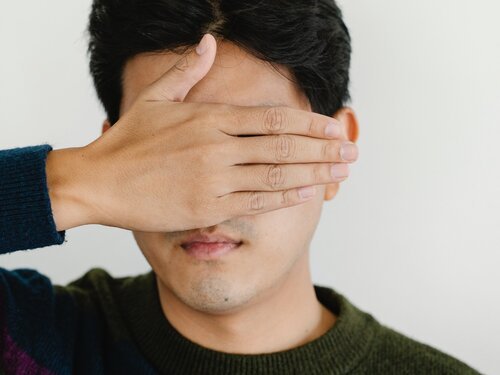
Educational Blogs from Our Mental Health Therapists
Learn about common challenges, including depression, anxiety, relationships,
trauma, and more, written by Maryland therapists!
Topic
- Anxiety
- Art in Therapy
- Biases
- Boundary Setting
- Brainspotting
- Burnout
- Business Owners
- COVID-19
- Careers
- Children & Teens
- Cognitive Behavioral Therapy (CBT)
- College Students
- Communication Skills
- DIY Crafts
- Depression
- Dialectical Behavior Therapy (DBT)
- Emotional Regulation
- Faith-Based
- First Responders
- Grief and Loss
- Highly-Sensitive Person
- International Clients
- Internships
- Ketamine-Assisted Psychotherapy
- LGBTQIA
- Men's Issues
- Mindfulness
- Motivation
- Neurodivergence
- Online Counseling
- Oppression
- Parenting
- Recovery
- Relationships
- Resources
- Sex Therapy
- Trauma and PTSD
- Women's Issues
- Workshop
Before You Ghost Your Therapist...
No one likes to be ghosted, not even your therapist. If you have been thinking about ending counseling services with your therapist but you don’t know how to, consider this before you ghost them.
How to Creatively and Effectively Address Stressful Issues Using Art in Therapy
When incorporating art into therapy, the emphasis is on the artmaking process. It’s not about how well you can draw or how talented you are. Instead, we focus on the thoughts and emotions that surface during the activity. For a better understanding of how this works, let’s look at a common art activity, also known as an art directive.
How Do I Know If I Am Having a Panic Attack, and What Can I Do About It?
Having a panic attack can be really unsettling. Sometimes people have a sense of impending doom or think they’re having a heart attack. They may also find themselves going to the emergency room as a result. This article will help you identify symptoms of panic attacks as well as some strategies you can use to help.
Recognizing Both When and How to Set Boundaries with Those Around You
Ever find yourself in a situation where a person asks something of you, and against your better judgment, you agree to it? For example, a friend asks you to go out to a late-night dinner, but you know you have an important meeting in the morning. You find it difficult to refuse, so you agree to meet with this friend anyway. This could be because you find it difficult to set healthy boundaries with those around you.
What Are Personal Boundaries, and How Do You Set Them for Yourself?
Boundaries are the rules or guidelines that we identify to keep ourselves safe and healthy. They help us create order and allow us to be responsible for our own actions, even if they are not always enjoyable. They allow us to identify those limits that are acceptable for ourselves as a way of engaging in self-love and respect.
Why Working with a BIPOC Therapist May Be Right For You
When getting ready to start a journey in therapy, we think about our positions at the beginning. That includes: what type of counselor we are looking for, what kind of therapy style we would want to receive, and what kind of perspective we might gain from our therapist. There are many elements to consider when finding a therapist that best fits you. Here are some reasons why working with a BIPOC therapist may be suitable for you.
Quick Everyday Mindfulness Activities
Mindfulness is about working to be present in your current activities and moments. Additionally, it has been shown to help alleviate the intensity of anxiety symptoms. Sometimes mindfulness activities can seem daunting to fit into your schedule, or complicated to execute. Here are some quick ways that you can incorporate more mindfulness into your day.
Eat. Gain. Wait.
What are the odds? The world is facing a pandemic, the likes of which have not been seen since the 1918 influenza pandemic. And as we slowly re-enter the world, so are trillions of Brood X cicadas emerging from the ground after 17 years. The irony is that as the cicadas emerge and leave their exoskeletons and future brood everywhere, we, too, are going through a metamorphosis as we re-enter the world post-pandemic.
Chinese Culture and The Stigma of Counseling
It’s not uncommon for people in the Chinese community to experience doubt or uncertainty about the idea of receiving counseling services. People may feel uncomfortable seeking help for their mental health issues when they are experiencing something difficult in their lives. While counseling can be helpful for addressing stressors and mental health concerns, there are a number of reasons why people may not be seeking out the counseling services that can help them. In this blog, I’ll be talking about 5 barriers to seeking mental health therapy in the Chinese community, and 5 reasons why people should consider counseling services.
The Lies We Tell Ourselves
We all have lies we tell ourselves, whether it’s about ourselves or other people, big or small. “I’ll remember to put gas in my car before work/morning school drop off.” “This job/ relationship isn’t so bad.” “I’m only going to stay for one drink, and then I’ll go home.” “So-and-so’s drinking/drug use isn’t that bad.” The lies we tell ourselves have a way of being the tip of an iceberg. There is much more happening beneath the surface than we realize. What if underneath the tip of that iceberg is a larger pattern? Often times this is the case with one "iceberg" being accompanied by many others. How, though, do you know if you’re floating in the ocean surrounded by icebergs?
Re-Entry Anxiety. The Struggle is Real!
With advancements in medicine, vaccines for COVID-19 are now available and have been distributed to more than 87.6 million Americans. This means more people are venturing out and enjoying the people, places, and things they have missed out on for the past year. But for some, the idea of leaving the comfort and safety of home is stressful. The idea of moving around in the world in the midst of an unseen virus can be daunting and debilitating.
Coloring Pages to Help Ease Your Mind
Nowadays, there are so many methods of de-stressing and spending our down time. We have television, smartphones, more nature-based activities such as hiking, jogging, or sightseeing, amongst many others.
The fact of the matter is that there is no right or wrong way to de-stress and relax, as we’re all different and we all have our own hobbies, preferences, and passions! Fortunately, there’s something for everyone, no matter what that may look like. Sometimes, trial and error have to be done to find the right activity for you.
Helping the Helper: Facilitating Mental Wellness for Police Officers
Every day, police officers are responding to critical incidents that can impact their health and mental well-being. Sometimes the impact is immediate and evident; other times, it’s insidious and builds over time. This can lead to officers developing poor coping mechanisms, physical problems such as digestive issues, and experiencing symptoms of post-traumatic stress disorder (PTSD). What can police departments do to help the helper?
How to Cope with Worry and Anxiety as a Christian
Dealing with anxiety can be tricky. When anxiety starts taking over our lives, we don’t always know where to begin. Figuring out how to cope with anxious or fearful thoughts or feelings may simply involve gaining insight. If you are a practicing Christian, you may have noticed just how many times anxiety is addressed in the Bible. The Bible is full of rich wisdom to hold onto, that can help us address anxiety and pursue peace from a spiritual angle. Please feel encouraged to read along with some of these passages from Scripture, and take as much time as you need to pause and think about what the author is trying to communicate about anxiety, worry, and peace.
Quotes to Help You Keep Your Anxiety in Check
While there are a number of really great coping strategies that can help us manage our anxiety and worry, sometimes a quote sticks with us, making it even easier to remember key concepts. If you deal with anxiety, you just might relate to some of the quotes in this blog. Pick the one that resonates with you, and keep it handy when you need a gentle reminder.
Concrete Steps for Managing Your Worry
One of the most common (and annoying) symptoms of anxiety is worry. The things you worry about may vary, depending on the specific type of anxiety you personally experience. Regardless of whether you deal with the everyday anxiety that everyone experiences, generalized anxiety, social anxiety, panic attacks, or a specific phobia, you can find strategies in this blog to help. As with all things, “take what you need, and leave the rest.”
How to Create a Sensory Tool Kit for Anxiety & Worry
A sensory tool kit is a small bundle of items that you will assemble and use to keep you calm and grounded. Each item in your sensory tool kit will appeal to one of your five senses (sight, touch, sound, taste, and smell). Grounding with the use of your 5 senses can be helpful if you have a tendency to get caught up in anxious thoughts about the future, or if you tend to get caught up in the past due to trauma or depression. Either way, using the items in your sensory tool kit can help bring you back to the present.
Pandemic Dreams
At this point, we’ve been living in the midst of a pandemic for almost one year! We now quarantine, work from home, teach children from home, wear masks, carry hand sanitizer, and think about how we’re going to celebrate holidays and birthdays without worrying about getting COVID-19. We also have new vocabulary that consists of “social distancing” and “quarantine fatigue.” This pandemic has created stress, anxiety, uncertainty, new losses and traumas, not to mention the buried grief and trauma it uncovered. How could all of this not infiltrate our dreams?
Commonly Asked Questions from New Clients
As LifeSpring’s virtual assistant, I’m the first person you’ll speak to and, hopefully, schedule an appointment with when giving our office a call! With that being said, I also encounter a lot of curious clients who have questions regarding the counseling process, what to expect, and what their next steps will be.
For many, seeking counseling is a huge step, yet a life-changing one. It’s completely normal to be nervous, unsure, or fearful at what this process will be like for you. When talking with me, I aim to be a helping hand as I get you connected and scheduled with a therapist that's right for you.
A Refreshing Take on Burnout and Fatigue: A Christian Perspective
If you’re human, you have probably felt exhausted before. You have probably had a moment, day, or season when you’ve felt there is way too much on your plate, and you cannot carry it any longer. Maybe you ended up skipping plans you originally looked forward to, called out from work, or missed a night or two of quality sleep. You were probably experiencing burnout, which is a state of emotional, physical, and mental exhaustion caused by excessive, prolonged stress. It happens when you feel overwhelmed, emotionally drained, and unable to meet constant demands.




















